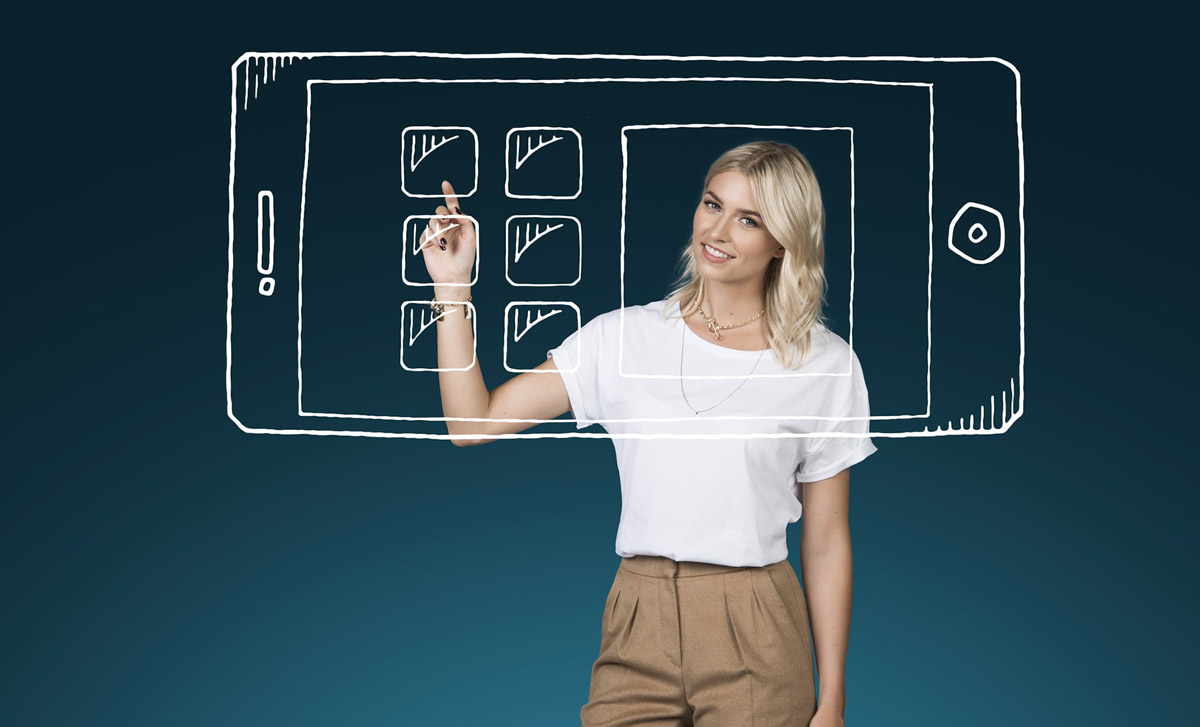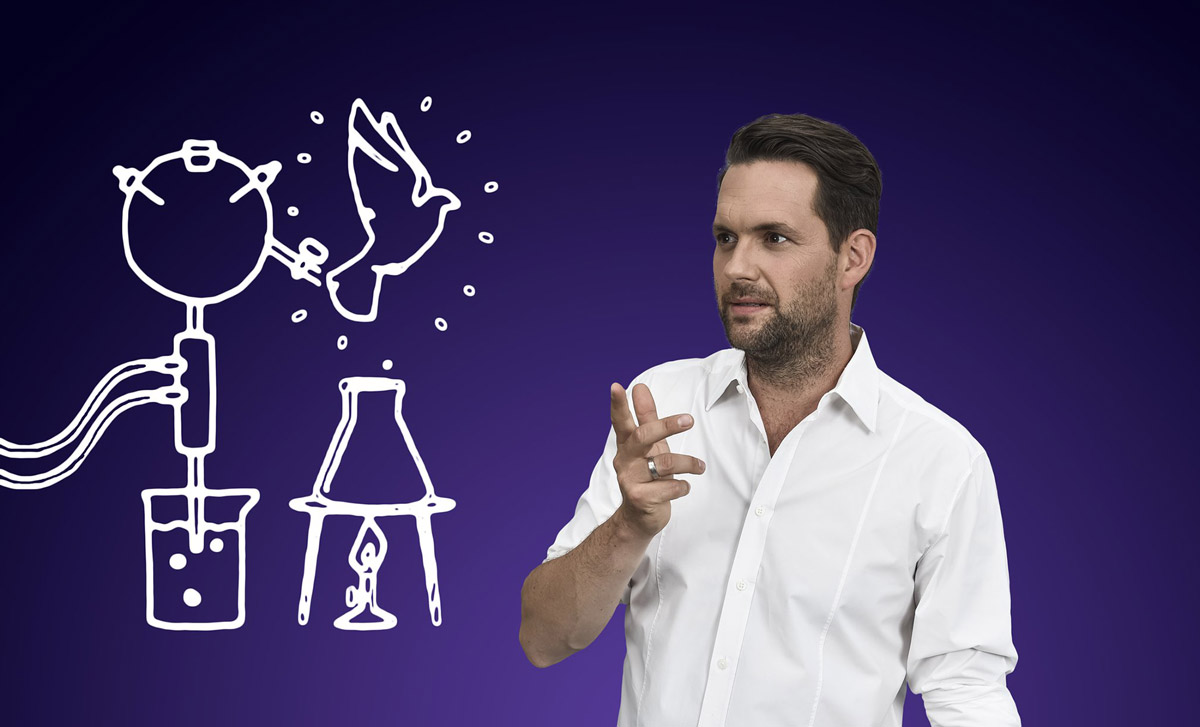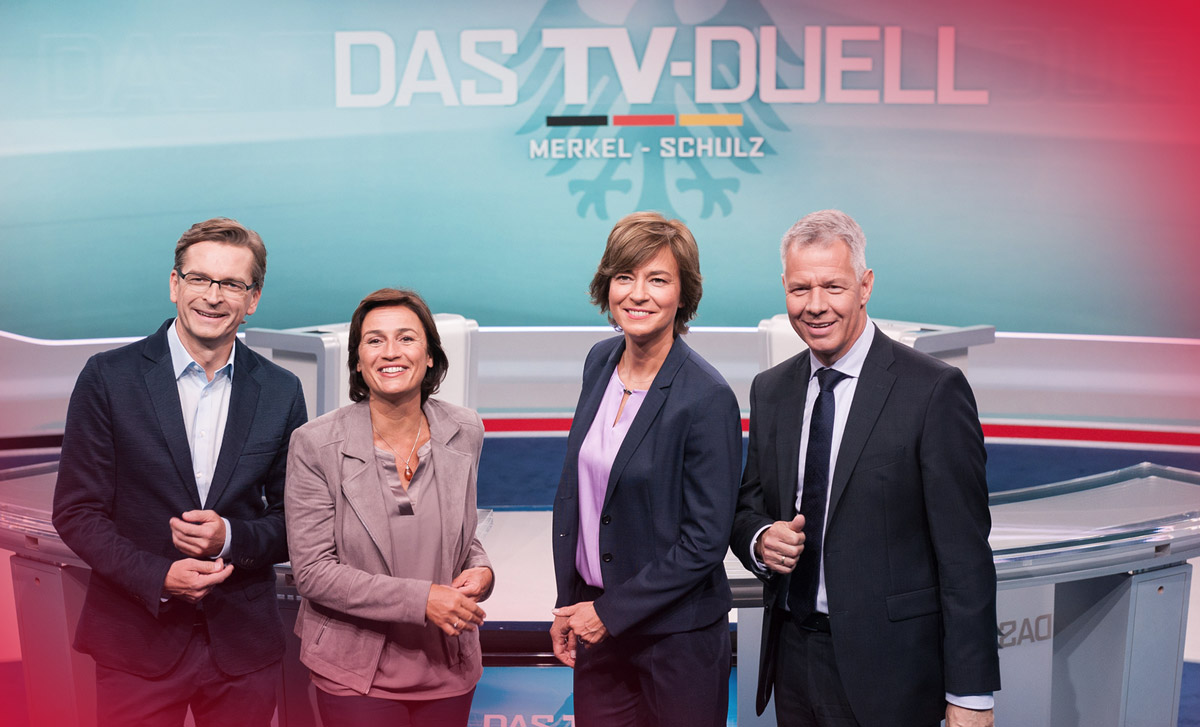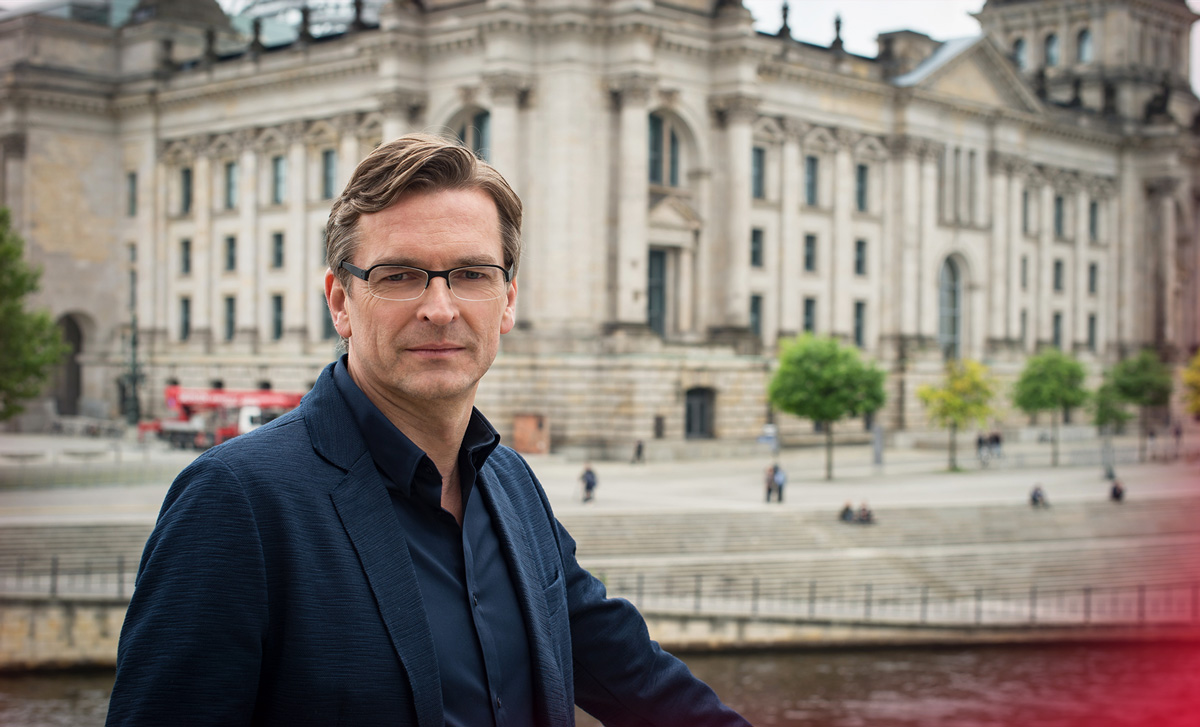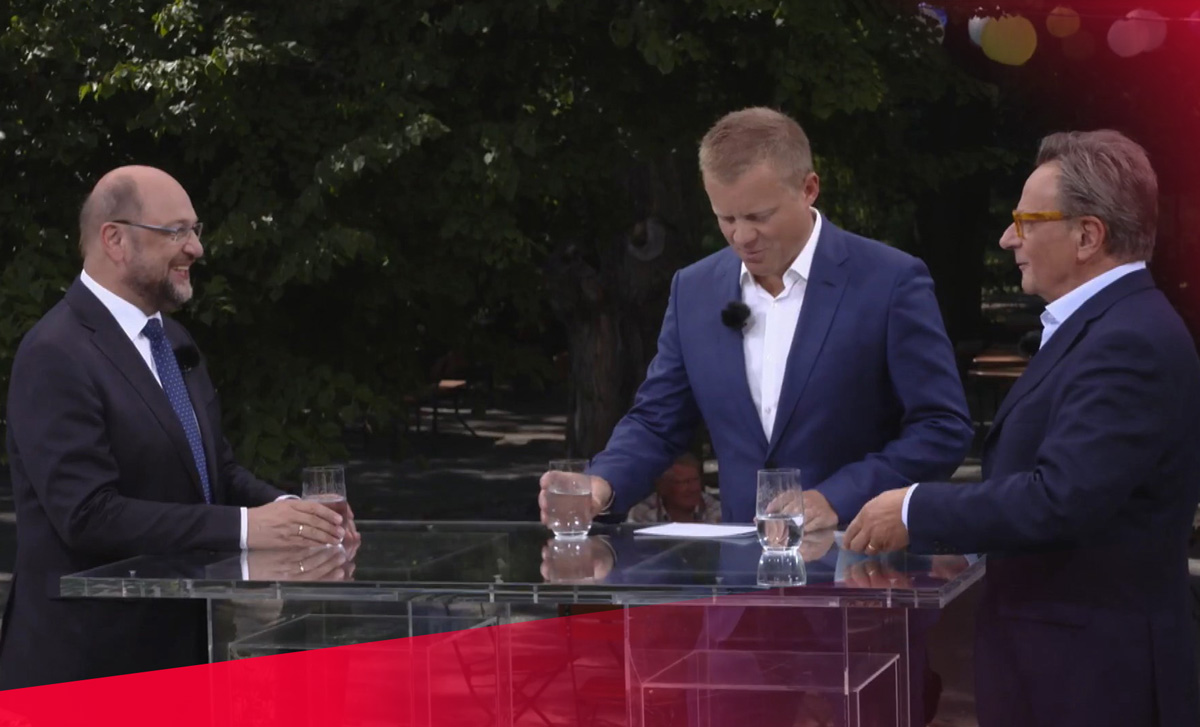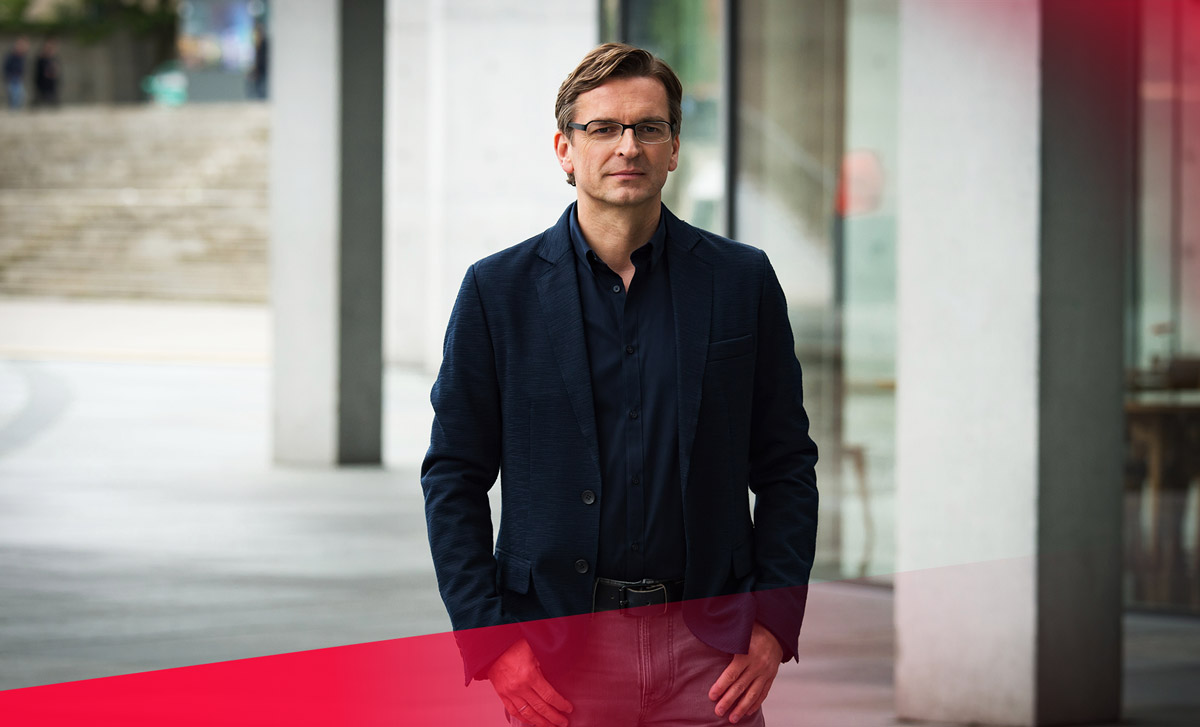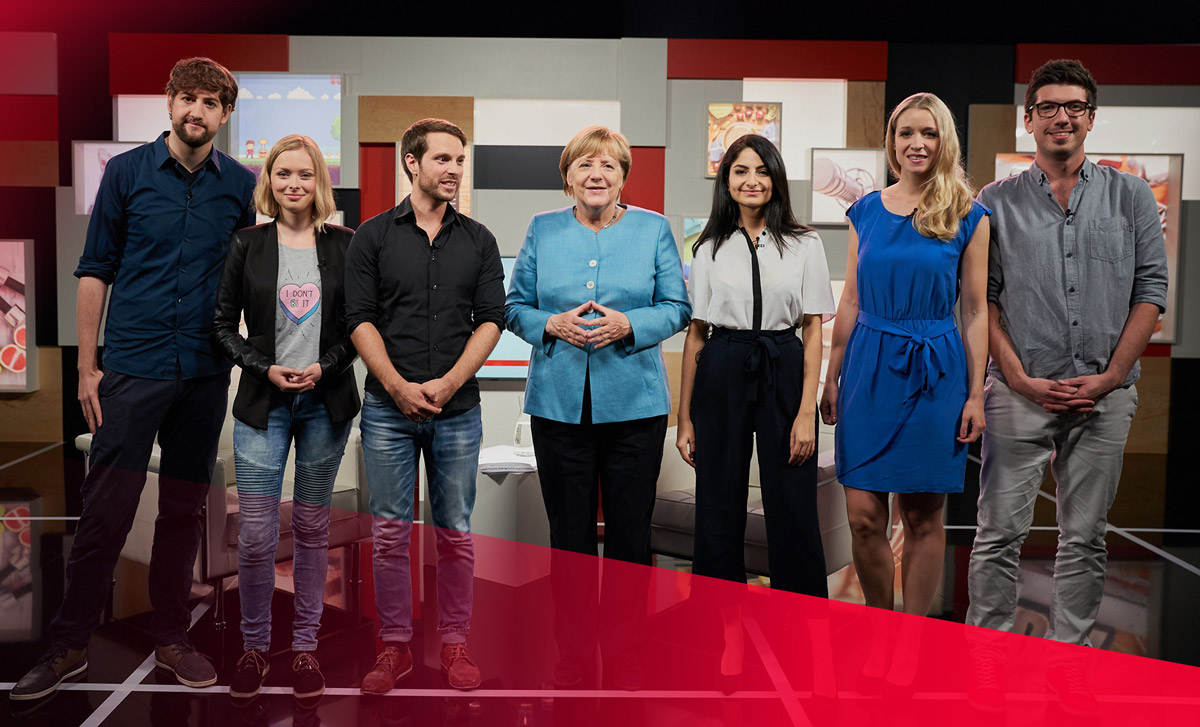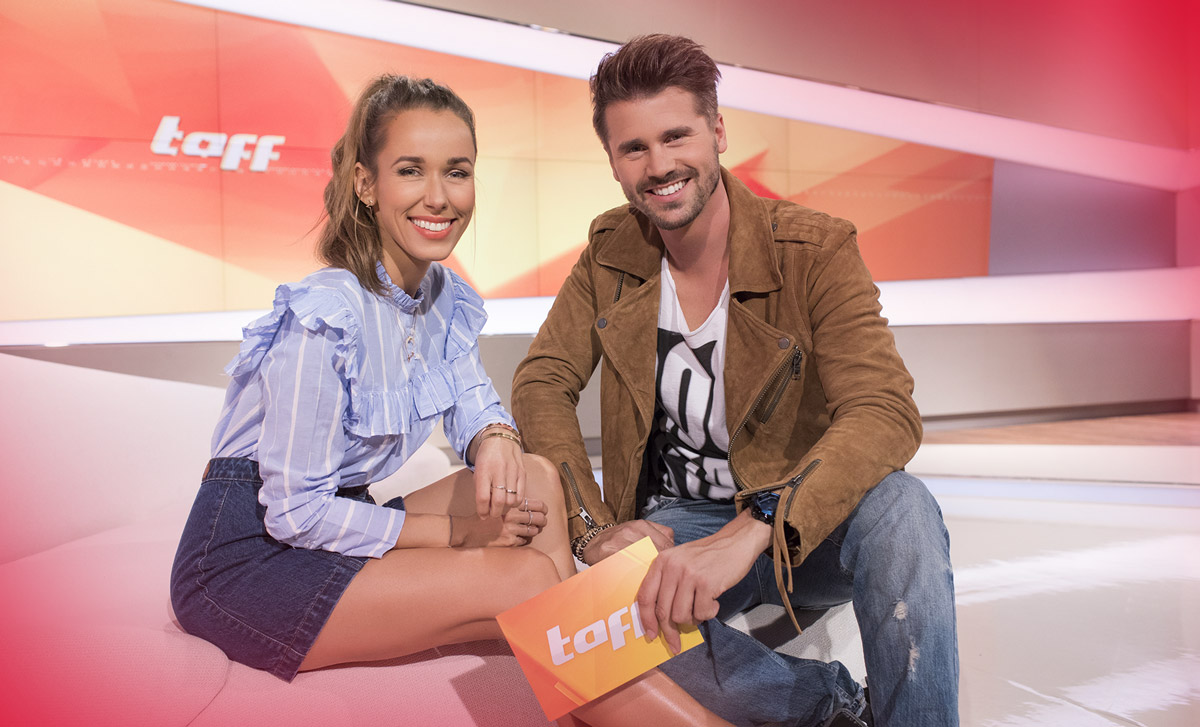#EinMann: That’s the hashtag that was all but unavoidable for Twitter users on the evening of September 11, 2017. On this day, these two unassuming words made up the third most-tweeted German hashtag. It’s a sign of what inspires younger people above all. “An interesting and entertaining political broadcast on German television – never thought I would ever see the day! #EinMann,” is one example. And “#EinMann. A person who actually seems capable of mobilizing voters and making our democracy stronger. A great story.” Another one: “I think #EinMann is just the right thing for our generation today.”
#EinMann is the official hashtag for the political show Ein Mann, eine Wahl (One Man, One Vote) on ProSieben. The show’s host is Klaas Heufer-Umlauf. The 34-year-old is best known as one half of the duo Joko und Klaas, winners of the Grimme Award, among others, for their ProSieben program Circus HalliGalli. That show had nothing to do with politics – it was pure entertainment. And that was exactly the missing ingredient Heufer-Umlauf, who is very politically engaged, wanted to bring to election coverage: “A political show that manages to have some humor in it” is how he described it when he presented the program in Berlin. In Ein Mann, eine Wahl, Heufer-Umlauf interviewed figures such as the Social Democratic Party’s (SPD) chancellor candidate Martin Schulz, Free Democratic Party (FDP) head Christian Lindner and former Green Party chairman Cem Özdemir. One man, three personalities: the classically liberal, the more left-leaning, and the conservative Klaas live together in a shared apartment, talk about politics and discuss which Klaas should interview which politician. Whether he was talking with political leaders, celebrities, or voters, Klaas always grilled his counterparts with a measure of charm and irony. His questions were direct, sometimes discomforting, often funny, and always fair. His three personalities dug into political ideas and positions from various perspectives. What should Germany look like in ten years’ time? That was a key question that Klaas discussed with his guests in creative settings such as during a drive in a sports car. And this was just the type of election coverage the public wanted: The first episode of Ein Mann, eine Wahl captured a market share of 19 percent among viewers aged 14 to 29.
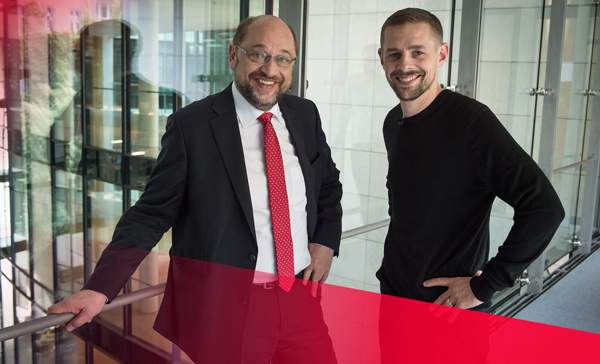
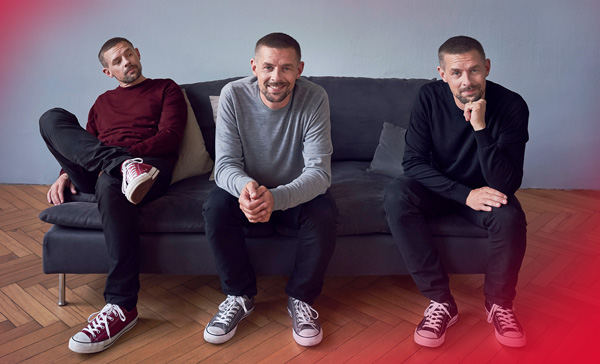
Breaking down politics in an interesting way to a younger demographic is incredibly important, according to current studies on voter participation in Germany. Since the Bundestag elections in 1953, participation by older citizens has far outstripped the voting habits of younger people. In all elections, participation was lowest among voters between 21 and 25 years of age. Democratic society increasingly faces the challenge of anemic interest in politics precisely among the younger voters who will shape the future.
» #EinMann. A person who actually seems capable of mobilizing voters and making our democracy stronger. A great story. «
Twitter User September 2017
So how can the younger generation be encouraged to exercise their right to vote? As a media company with TV stations and online platforms used primarily by younger viewers, ProSiebenSat.1 has a special responsibility to society: “Our broadcasting group reaches a young audience. We already proved that in previous Bundestag elections. Thanks to our 2017 campaign and extensive election coverage on television as well as online, we as a company are again fulfilling our responsibility to society by advocating for a broad voter participation,” explained Wolfgang Link, Head of the Management Board at ProSiebenSat.1 TV Deutschland GmbH.
On March 7, 2017, around six months before Germany’s parliamentary elections, Sven Pietsch, editor-in-chief at ProSiebenSat.1 TV Deutschland GmbH, spoke before the ProSiebenSat.1 Advisory Board. The interdisciplinary board chaired by former Bavarian Minister President Dr. Edmund Stoiber has advised ProSiebenSat.1 Group on social, ethical, and media policy issues since 2011, and encourages the Group to address important topics such as education and culture. Pietsch presented the planned initiatives for the Bundestag election and discussed new ideas and possible approaches with Stoiber and his colleagues. “We do not want to wag a finger and lecture youth. Instead, we aim to show them the influence that political decisions and developments can have on young people’s lives,” Pietsch emphasized. “The key is finding the right way to present complex topics. We speak the younger generation’s language and that enables us to get across important issues in an entertaining way.”
» We do not want to wag a finger and lecture youth. Instead, we aim to show them the influence that political decisions and developments can have on young people’s lives. «
Sven Pietsch Editor-in-chief at ProSiebenSat.1 TV Deutschland GmbH
After conferring with the Advisory Board, Pietsch and his team decided they would repeat 2013 and put together a multi-station, cross-media campaign for the Bundestag elections in 2017 with its own slogan: “Shape your future: Go vote!” This was ProSiebenSat.1’s invitation during TV shows, in advertisements and on online platforms, encouraging voters nationwide to vote. The objective was to reach young people whenever and wherever, and – this is particularly important – in a way that spoke to them. When a YouTube star with millions of fans and followers promotes voting, young fans likely listen more closely than to an official election ad by a political party. The campaign mainly worked with personalities popular with a younger target group, including YouTuber LeFloid, TV hosts Stefan Gödde and Lena Gercke, and TV chef Steffen Henssler. A total of 40 stars appeared in ads encouraging people to vote.
The success of the “Go vote!” campaign shows that these testimonials do work to mobilize the younger demographic. A study by German research institute forsa accompanying the initiative indicated that it was particularly effective in reaching first-time and young voters. Among first-time voters aged 18 to 22, 70 percent thought the campaign was a good way to motivate people to vote; 65 percent of young voters aged 18 to 29 thought so, too. It was also first-time and young voters who considered the campaign to be very credible. And more people familiar with the campaign intended to and actually did vote compared with those who did not know it.
A recent study by YouGov indicates that youth and young adults are most definitely interested in politics: In July 2017, the polling institute worked with the teen publication BRAVO to survey 14 to 17-year-olds about their political opinions. The survey showed that one-third of them actively inform themselves about political issues. Among other things, young people wished for “greater honesty and directness from politicians and a more comprehensible presentation of their political platforms.” Programs like Ein Mann, eine Wahl provide just that: “I want to contribute to increasing voter turnout,” said Heufer-Umlauf at the start of the show. And of course the objective was promoting the general understanding for politcal positions. The Twittersphere agreed: “It’s politics packaged to make it interesting for younger people. And if that works for 40 of them, it’s already worth it,” wrote one user.
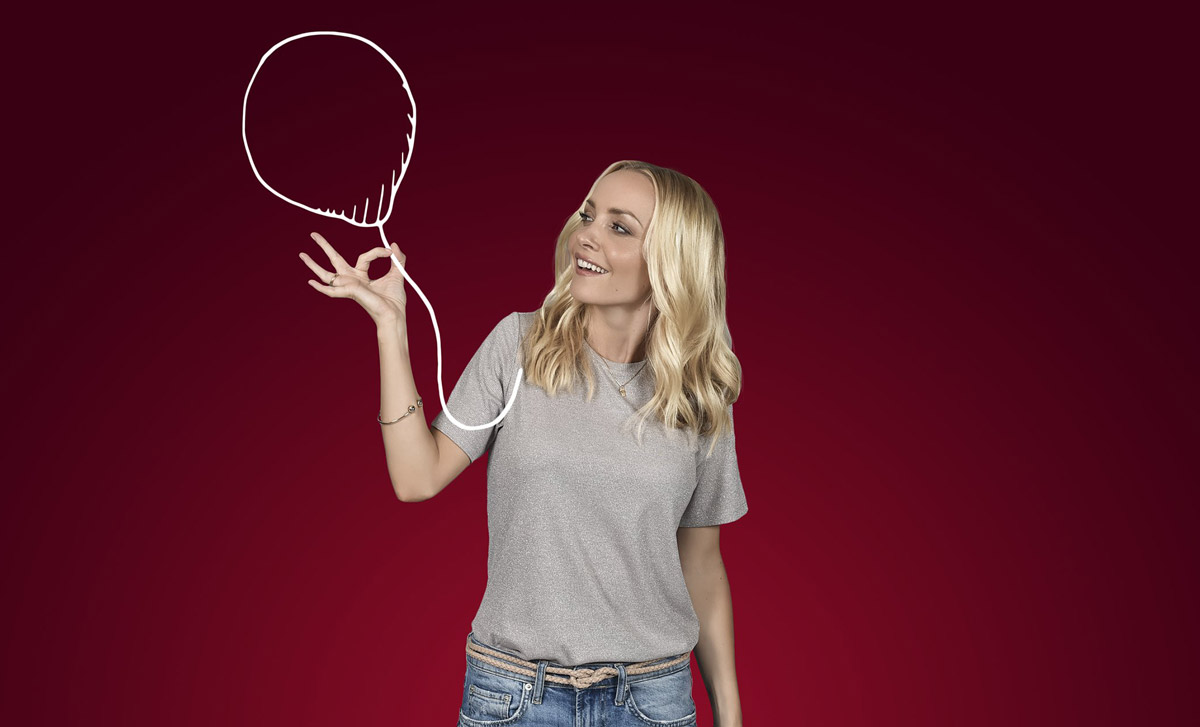
Political TV shows
Additional election coverage on news and information shows
The ProSiebenSat.1 Group’s stations also provided election coverage on their news magazines and informational shows. Specials on SAT.1-Frühstücksfernsehen and akte.2017 (SAT.1), Galileo (ProSieben) and Abenteuer Leben täglich (kabel eins) provided viewers with a wealth of information about various political issues in the run-up to the election. Galileo viewers were even able to virtually experience what it is like to be Germany’s chancellor using the app The Choice of Germany: Das Kanzlerexperiment (The Choice of Germany: The Chancellor Experiment).
SchoolsON
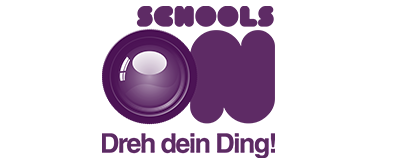
“Dreh Dein Ding” (“Shoot to Win”) is the motto of the SchoolsON contest for students 12 to 20 years of age. Along with the German Children and Youth Foundation, ProSiebenSat.1 has encouraged students as a whole class or on their own initiative to produce a TV segment for Galileo or taff since 2015. In the election year 2017, entries were submitted for ProSieben Newstime in the special category “Deine Wahl Spezial 2017” (“Your Election Special 2017”), among others. The winning submission asked whether young people 16 years or older should be allowed to vote in the next parliamentary elections.
SchoolsON aims to encourage youth to be responsible and mindful when using audiovisual media. A panel of professionals judge the entries and choose the best submissions. The winners are chosen not so much based on technical execution but rather on the fundamental idea behind the video clip. The best contributions are broadcast on television. In addition to technology packages for future video productions, the winners are invited on a tour of the ProSiebenSat.1 studios with an exclusive peek behind the scenes.
